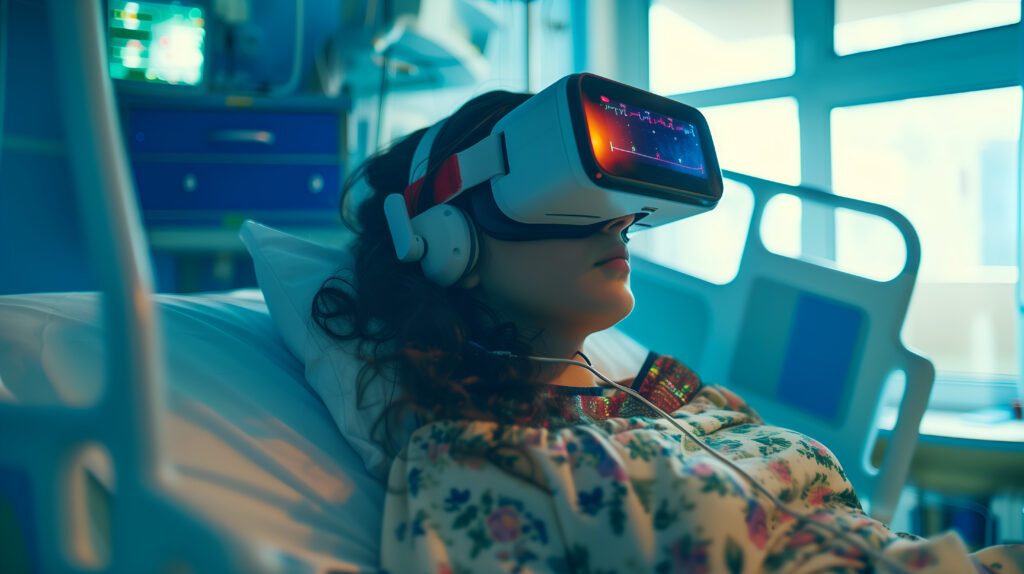The healthcare industry is in a constant state of evolution, and it has become increasingly important to prioritize patient-centered care experiences. However, healthcare providers worldwide encounter various challenges that impede their ability to deliver top-notch care. In this context, innovation and technology serve as the guiding lights that can bridge these gaps, turning challenges into care opportunities for growth and improvement.
This post highlights how healthcare providers and stakeholders can leverage technology to enhance patient experience and care outcomes.
Content Index:
- Exploring the complexities of delivering quality healthcare
- Connecting with patients where they are at
- Transforming the modern patient experience through technology
- 5 ways technology improves patient experience in healthcare
Exploring The Complexities Of Delivering Quality Healthcare
Despite technological advancements, numerous obstacles hinder the delivery of quality healthcare. These include rising costs, healthcare workforce shortages, lack of access to care in underserved areas, inefficient coordination between providers, and the ever-increasing burden of chronic diseases. As seen in recent years, we have laid down some obstacles to quality healthcare delivery.
Improving Healthcare Equity
One of the most urgent challenges in healthcare today is the significant and growing gap in healthcare equity. Access to healthcare services is becoming increasingly unequal, but technology can be a robust tool to address this issue. Telehealth platforms, digital health records, and AI-driven diagnostic tools have the potential to make healthcare more inclusive by overcoming geographical and socioeconomic barriers. These tools can help ensure that quality care is available to everyone, regardless of where they live.
Streamlining Clinical Workflows
Inefficient clinical workflows can increase waiting times, reduce face-to-face interactions with healthcare providers, and negatively impact patient satisfaction. Here, technology integration can transform the status quo. By utilizing electronic health records (EHRs), automated appointment scheduling, and AI-powered triage systems, workflow efficiency can be optimized and healthcare professionals can concentrate on providing the best possible care to their patients.
Addressing Employee Burnout And Shortage
The healthcare sector is grappling with an alarming employee burnout rate and shortages. However, digital solutions can provide a way out of this problem. By integrating AI-assisted diagnostics and robotic process automation (RPA) for administrative tasks, technology can greatly reduce the workload on healthcare workers, alleviate burnout, and make the healthcare profession more sustainable and appealing to future generations.
Keeping Pace With Medical Advances
The rapid pace of medical science and information advances poses a challenge for healthcare providers striving to keep up with the cutting edge of treatment options and patient-centered care strategies. Advanced analytics, machine learning models, and continuous learning platforms keep healthcare professionals updated on the latest developments, ensuring patients receive the most current and effective treatments.
Bridging The Patient Safety Gap
Ensuring patient safety should always be the top priority; however, gaps may lead to adverse events and compromise the quality of care. However, technology has introduced real-time patient monitoring systems, error-reducing software, and predictive analytics that can foresee potential risks before they become major issues. This significantly enhances patient safety and their trust in the healthcare system.
Connecting With Patients Where They Are At
In today’s rapidly changing healthcare landscape, technology plays a crucial role in enhancing healthcare delivery by meeting individuals where they are most comfortable (read: home). As patients increasingly embrace digital platforms and mobile devices, healthcare providers must adapt to these preferences, ensuring a seamless and personalized experience. By leveraging technology, providers and caregivers can bridge the existing gap between traditional healthcare settings and the modern patient’s lifestyle, thus improving health outcomes.
Transforming The Modern Patient Experience Through Technology
Technological advancements have revolutionized the way patients interact with healthcare providers. From telemedicine solutions to mobile health applications, technology facilitates patients to take a proactive role in managing their health. By integrating these cutting-edge tools into the care continuum, healthcare organizations can transform the patient experience, making it more convenient, efficient, and tailored to individual needs, which has a direct impact on outcomes.
Also Read: Healthcare Innovations: What To Expect In 2024?
5 Ways Technology Boosts Patient Experience in Healthcare

Telemedicine Bridging Distance And Convenience
Telemedicine platforms facilitate patients to consult with healthcare professionals from their comfort, eliminating geographical barriers and lowering the need for in-person visits. This technology not only enhances access to care but also improves convenience for patients, particularly those with mobility challenges or living in remote areas.
Mobile Health Applications Empowering Patients
Smartphone applications have become powerful tools for patients to monitor their health, track vital signs, and manage chronic conditions. These user-friendly apps provide real-time data, enabling patients to make informed decisions about their well-being and communicate more effectively with their healthcare providers.
Electronic Health Records (EHRs) Streamlining Care Coordination
EHRs revolutionize how patient information is stored, accessed, and shared among healthcare professionals. By maintaining a comprehensive and up-to-date medical history, EHRs facilitate better care coordination, reduce redundant tests, and minimize the risk of medical errors, ultimately improving the overall patient experience.
Patient Portals Enhancing Care Engagement and Self-Management
Patient portals offer a secure online platform where individuals can manage their medical records, communicate with their healthcare team, schedule appointments, and receive educational resources. This technology enables patients to take an active role in managing their health issues, creating a collaborative relationship with their providers.
Virtual Reality and Augmented Reality Revolutionizing Patient Education
Immersive technologies like virtual reality (VR) and augmented reality (AR) are transforming patient education and preparation for medical procedures. By providing realistic simulations and interactive experiences, these technologies can alleviate anxiety, improve understanding, and enhance the overall patient experience.
Start Gaining Better Outcomes Today
Technological advancements are significantly shaping healthcare’s future. Emerging technology has the potential to revolutionize healthcare delivery, leading to improved patient outcomes and experiences. By embracing these technological advancements, healthcare organizations can cultivate a patient-centric environment, prioritizing convenience, engagement, and personalized care.
One of the important benefits of technology in healthcare is convenience. Patients can now avail of medical care from the comfort of their offices or homes through emerging technologies. This advancement has made healthcare more accessible, particularly for patients living in remote areas or with mobility issues. Moreover, technology has enabled healthcare providers to streamline their operations, cutting down wait times and improving the overall patient experience.
Another critical benefit of technology in healthcare is engagement. Patients can now procure a wealth of information regarding their health, enabling them to take an active role in their care. This increased engagement results in better health outcomes and improved patient satisfaction. Lastly, technology has enabled healthcare providers to deliver personalized care. With electronic health records, providers can access a patient’s medical history, making it easier to diagnose and treat illnesses. Additionally, wearable devices and health monitoring apps allow patients to track their health metrics, providing healthcare providers real-time data to personalize their care.
In conclusion, technological advancements have significantly impacted the healthcare industry, and healthcare organizations must remain adaptable and adaptive to leverage these innovations. By embracing technology, healthcare providers can provide unparalleled patient experiences and improve overall health outcomes.












